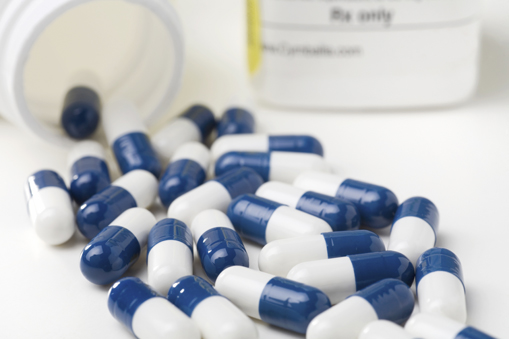Insight
We believe corporations have an obligation to advance health equity, and to assess how their business operations, services, and products may contribute to health inequities. For decades, ICCR members have engaged leading pharmaceutical companies on concerns related to access and affordability of medicines, vaccines, and other health technologies. Most recently, our focus has been on equitable access to COVID vaccines and therapies and how patent misuse may inhibit access to medicines
Our members also press food and beverage companies, casual restaurant chains, and retailers to increase their offerings of affordable nutritious foods to improve health outcomes worldwide. We also challenge technology companies to prevent and mitigate the algorithmic harms that occur through the use of AI in healthcare settings.
As faith-based and responsible investors, we advocate for corporate and systemic reforms that will improve the health and well-being of communities, especially communities that bear a disproportionate burden of disease evidenced by health inequities rooted in institutional racism. Corporations have an important role to play by ensuring that their business operations and public policy engagements do not contribute to or exacerbate existing racial or gender inequities, both in the US and globally.
Current Initiatives:
Through a combination of dialogue and the filing of shareholder proposals, ICCR’s members are seeking to improve community health.






















Our Impact
How ICCR is driving systemic reforms that will improve access and affordability of health care for all.
Health Equity Staff Contacts
To learn more about our program, reach out to our staff:

Meg provides strategic direction for ICCR’s engagements on health equity.
Phone:212-870-2984
Email:mjonesmonteiro@iccr.org

Misha provides cross-programmatic support for the Health Equity and Advancing Worker Justice programs.
Email:mahmad@iccr.org
Health Equity Resources
Publications, blogs, investor statements, comment letters, webinar recordings and press releases related to investor action on health equity.

A key product in the effort to end TB is diagnostic testing. More than 1 in 3 people with TB go undiagnosed, and part of the reason why is lack of access to and affordability of testing. Last September, Cepheid, a molecular diagnostic company and subsidiary of Danaher Corporation, announced a 20% price reduction of its Xpert test […]

We write as members of the Interfaith Center on Corporate Responsibility (ICCR), a coalition of faith and values-based investors, in response to the request for comments by HHS on the implications of access and benefit sharing (ABS) commitments/regimes and other proposed commitments being considered under a WHO Convention, Agreement or Other International Instrument on Pandemic […]

ICCR’s guiding principle is that sustainable corporations must look beyond the next earnings report to account for the full impact of their businesses on society and the environment, and must view the well-being of all of their stakeholders ― including their workers and the communities where they operate ― as integral to their long-term success. […]

IOPA was established in 2017 to engage with opioid manufacturers, distributors, and retail pharmacies on opioid-related business risks that have implications for long-term shareholders, communities, and the economy. In 2023, the IOPA wound down its collaborative efforts. In its five years of operations, the coalition actively engaged numerous corporate boards and executives in dialogue, filed […]

Partnership for a Healthier America has launched its Food Equity Opportunity Map in partnership with the University of Maryland Baltimore County, highlighting where improving access to good food would make the greatest impact and allowing everyone to see what Food Equity looks like in their community for the first time.

A new I-MAK study exposing the profound impact of extended patent protection that limits biosimilar competition and maintains high drug prices for patients and payers. The study highlights the staggering $158 billion in revenue amassed by drug makers after the expiration of primary patent protection from just four biologic drugs: Humira, Avastin, Rituxan, and Lantus.

In a letter sent to 21 companies including Coca-Cola ($KO), Kraft ($KHC), Unilever ($UL), McDonald’s ($MCD), and Amazon ($AMZN) among other iconic brands, the investors pointed to the COVID-19 crisis and how it has exposed inequitable systems that contribute to the economic and health struggles of Black, Latinx and Indigenous communities in the U.S. The investors argue that the way food is developed and marketed to communities […]

On August 31, 2023 investors released a statement voicing deep concern about lawsuits brought by pharma companies and trade groups to block the U.S. government’s ability to negotiate fair drug prices for Medicare beneficiaries. The statement, which was endorsed by more than 30 institutional investors, is being sent to Astellas Pharma, Inc. ($ALPMY), AstraZeneca ($AZN), Bristol-Myers Squibb Company ($BMS), […]

A new report published by the Access to Medicine Foundation. It is becoming increasingly clear that releasing antibiotic waste into the environment can drive antimicrobial resistance (AMR). In helping to curb this rapidly rising global health threat, pharmaceutical companies can ensure the production of their lifesaving antibiotics does not inadvertently contribute to drug resistance. A new […]

On June 1, 2023 ICCR submitted the following letter to members of Congress urging them to support legislation that builds healthy, equitable, and sustainable food systems.

Child health experts raise numerous concerns about the negative effects of children’s exposure to unhealthy digital food marketing, including advertising and branded product placements on child-oriented videos.

When pharmaceutical companies set targets for executive performance, and base the amount of their compensation on meeting those targets, they often use profit metrics that are not based on Generally-Accepted Accounting Principles (like “Adjusted Earnings Per Share”) which routinely filter out legal settlement costs and fines from the end result. By excluding the $5 billion […]





